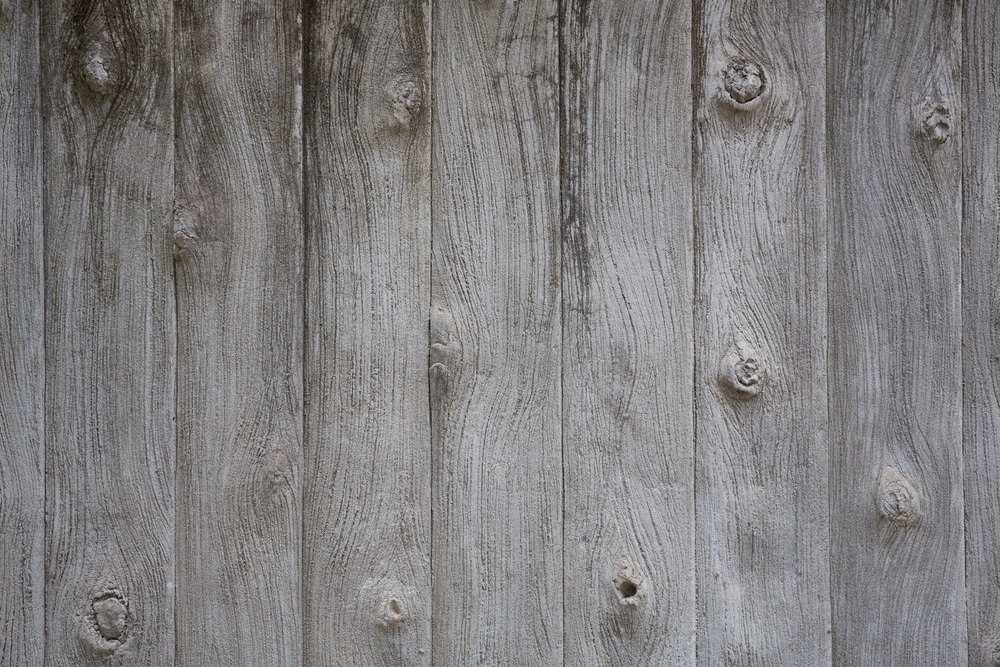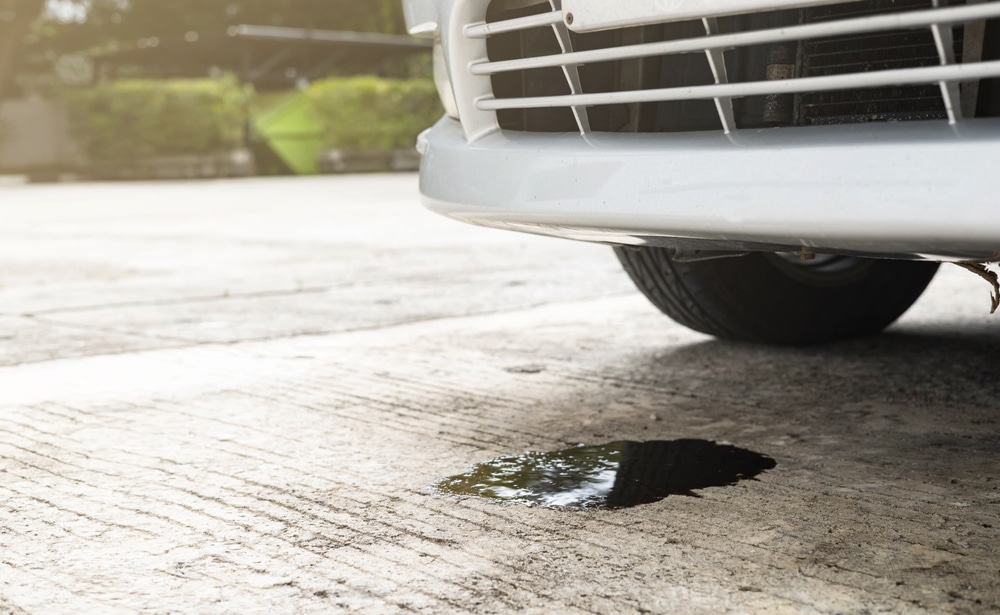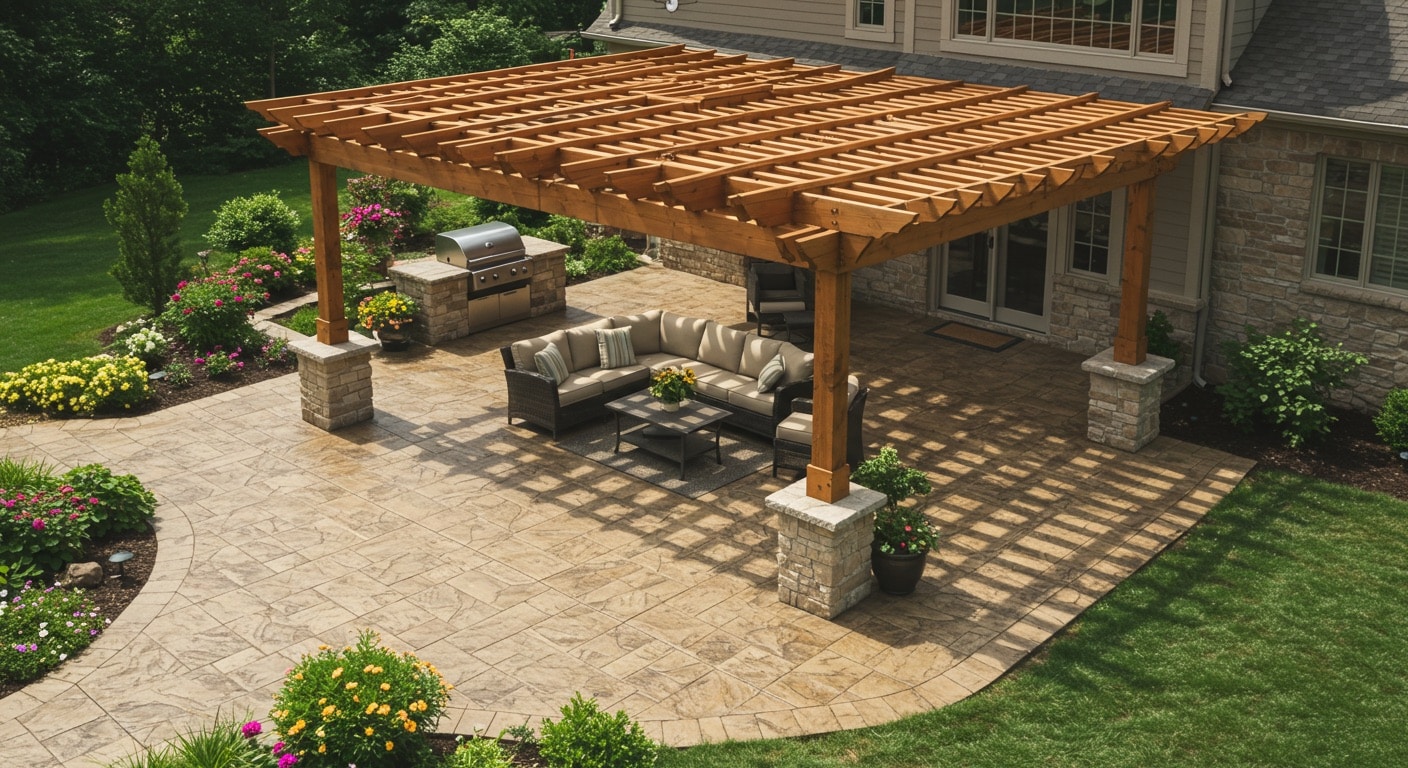Perfect Concrete Rebar Spacing: Why Most Concrete Driveways Fail Within 5 Years
April 26, 2025A beautifully poured concrete driveway adds significant curb appeal and practicality to any property in Oklahoma City, OK. However, many homeowners find that within just a few short years, cracks, shifting, and structural failures begin to emerge. One critical factor behind these premature failures is improper concrete rebar spacing. Understanding the right spacing and the role of concrete rebar is essential to ensuring the longevity and durability of your driveway.
Understanding Concrete Rebar: The Basics
First, let’s clarify. What is rebar used for? Rebar, short for reinforcing bar, is steel reinforcement used in concrete construction. It helps concrete structures withstand tension, improving their strength and longevity. Essentially, concrete alone is strong in compression but weak under tension. Concrete rebar solves this problem, providing tensile strength to complement concrete’s compressive strength.
Why Is Rebar Used in Concrete?
Rebar is embedded into concrete to:
- Reduce cracking from shrinkage and thermal expansion.
- Improve structural integrity.
- Support heavy loads, like vehicles on driveways.
Neglecting proper rebar usage can drastically shorten your driveway’s lifespan, often causing costly repairs or full replacements within just five years.
Different Types of Rebar: Choosing the Right One

When deciding what rebar to use in concrete, homeowners and contractors have several options:
- Carbon Steel Rebar: Most widely used, affordable, and highly durable.
- Epoxy-Coated Rebar: Provides resistance to corrosion, ideal for humid or moisture-rich environments.
- Galvanized Rebar: Coated in zinc to protect against rust and corrosion.
- Fiberglass Rebar: Lightweight, non-corrosive alternative suitable for specific applications.
Each type serves a distinct purpose, but carbon steel rebar types are most commonly used in residential driveways due to their balance of strength, affordability, and ease of availability.
Determining Proper Concrete Rebar Spacing
Correct spacing is essential for rebar effectiveness. Improper spacing leads to structural weaknesses, often evident through cracking and uneven settling. In residential concrete driveways, rebar spacing typically ranges from 16 to 24 inches, depending on the thickness and the intended use. Spacing beyond this range can compromise strength and durability. Here are some of the key factors influencing rebar spacing:
- Driveway thickness (typically 4-6 inches for residential use).
- Soil stability and quality in Oklahoma City, OK.
- Expected vehicle load and frequency.
What Size Rebar Is Most Commonly Used in Residential Concrete?
For residential driveways, #3 or #4 (3/8-inch or 1/2-inch diameter) rebar is typically used. The rebar is spaced either at 16-inch or 24-inch centers, depending on the specific requirements of the project. Larger driveways with heavier traffic, such as those used for RVs or trucks, may still opt for thicker rebar (#5, 5/8-inch diameter) for enhanced durability. Here’s how the spacing should be adjusted based on driveway thickness:
- 4-inch driveway: Spacing every 16-24 inches.
- 5-6-inch driveway: Spacing every 16-24 inches, typically with thicker rebar for added strength.
Why Most Concrete Driveways Fail Within 5 Years
Improper concrete rebar spacing and incorrect rebar types are primary reasons many driveways deteriorate prematurely. Here are some common pitfalls:
- Inadequate Rebar Coverage: Rebar too close to the concrete surface can corrode, weakening structural integrity.
- Excessive Spacing: Leads to insufficient tensile strength.
- Incorrect Rebar Type: Using non-coated rebar in moisture-rich environments can accelerate corrosion.
Proper installation practices are crucial, especially considering Oklahoma City’s diverse weather patterns, which include heavy rain, humidity, and significant temperature fluctuations.
How Weather Affects Concrete Rebar Performance
Oklahoma City, OK, experiences distinct seasonal changes, influencing how concrete and rebar behave. Here’s how weather impacts rebar used in concrete:
- Freeze-Thaw Cycles: Expansion and contraction lead to cracks if rebar isn’t adequately spaced or protected.
- High Moisture Levels: Accelerate corrosion, weakening the rebar and compromising the concrete.
- Heat and UV Exposure: Cause surface cracking if rebar spacing isn’t sufficient to mitigate stress.
Understanding these factors is essential for homeowners and contractors to prevent costly driveway repairs or replacements.
Common Misconceptions About Rebar Spacing and Usage
Misunderstanding rebar’s purpose or using shortcuts in spacing can severely affect driveway durability. Here are some misconceptions:
- “Concrete alone is enough.” Concrete without reinforcement quickly fails under tension.
- “Tighter spacing is always better.” Excessively close spacing doesn’t necessarily increase strength and can waste resources.
- “All rebar types perform the same.” Different rebar types have unique properties; choosing the right one matters.
Proper Rebar Installation Practices
To maximize your driveway’s lifespan, start by ensuring a professional evaluation of soil and environmental conditions specific to Oklahoma City, OK. Proper assessment helps address potential issues related to soil instability and moisture.
Additionally, it’s crucial to strictly follow recommended rebar spacing and choose appropriate rebar types suited to local weather and usage requirements. Correct installation practices significantly impact your driveway’s long-term performance, ultimately reducing maintenance and repair costs.
Need a Concrete Driveway in Oklahoma City, OK? Contact Us Today!

If your driveway has started showing signs of premature aging, or you’re planning a new driveway, Bison Concrete is here to help. We specialize in high-quality concrete driveways built to last in Oklahoma City’s challenging climate. Our team will guide you through selecting the ideal rebar type, appropriate spacing, and installation methods tailored to your specific needs.
Contact Bison Concrete at (405) 881-8384 today to schedule your consultation and invest in a driveway designed for lasting performance.
Interested in our services?
Get a free quote today!
Don’t wait to start your next construction project! Whether it’s a custom build, a renovation, or a repair, Bison Concrete is here to turn your ideas into reality.



